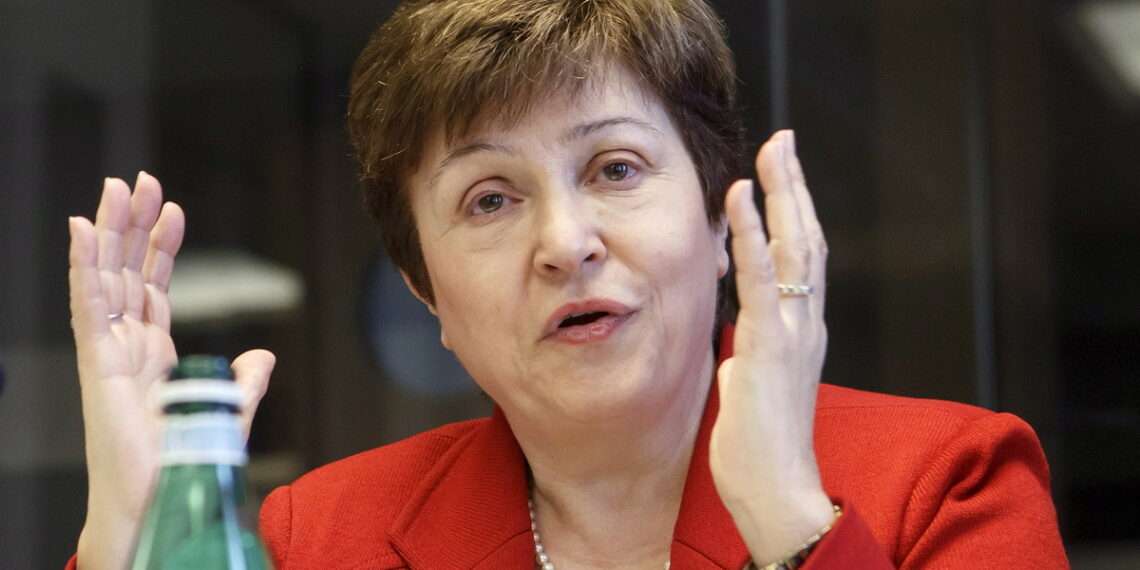I write this with great restraint from a complete outburst, if you could see my face and the cocktail emotions of anger, dismay, disappointment and disbelief with which I write this, you would then understand how Ghanaians feel at this point in time, particularly, pensioners.
I do not intend to make my arguments on the basis of current macroeconomic figures or indicators as economic analysts more learned than I am, have done so and moreover, being the IMF, you already are privy to such information.
What I intend to base my argument on is the stiff resistance to the debt exchange programme by the Ghanaian populace in view of the “boiling anger” and disgust the populace have towards the debt programme, giving you a glimpse of the current mood of the Ghanaian people.
Ghanaians are angry and could explode at any given moment if the debt exchange programme goes on.
Pensioners will be impoverished, value of investment holdings by individuals will be slashed reversing the years-long-returns made on investments, and most importantly, the severe loss of confidence and setback in the culture of investing by the Ghanaian people.
With the debt exchange programme, some 1.3m individual bondholders (along with their dependents) are estimated to lose about GHS 15.5bn ($1.5bn) in life investments.
Ghanaians do not understand how, after carelessly mismanaging the economy and recklessly going on a borrowing spree despite warnings from economic analysts and even your own institution (reference made to Article IV 2019), we are now made to bear the brunt and consequences of the reckless decisions of the government.
Literally crying live on national television, General Secretary of one of the country’s political party said, “You made these old people come to the Finance Ministry and picket. You don’t care, you have mismanaged the economy, made yourself rich, made everybody rich within your space and you want to treat Ghanaians like this?.”
The Ghanaian media space some days ago, was flooded with several reports of the country’s former Chief Justice, Sophia Akuffo, now a pensioner, joining other pensioners to picket at the premises of the Finance Ministry.
“I find this wicked, I find this disrespectful, I find this unlawful, I find it totally wrong, period!”, remarked the Chief Justice when asked about her thoughts on the debt exchange programme.
To say people are angry about their life long investment being taken away because of the reckless, consumption-driven decisions of the government despite early warnings, is an understatement.
The country is currently in an economic mess courtesy of the government, but funny enough, the government that brought the economy to its current messy state, is living large and further ballooning its expenditure.
Instead of being austere and making serious and significant cuts in expenditure, the government rather decides to expand its expenditure from GHS 137bn ($13.7bn) in the 2022 budget to GHS 205bn ($20.5bn) in the 2023 budget.
In a time when our inflation has hit a record high of 54%, debt to GDP is more than 100%, we have defaulted on our debts among other things, and the government decides to live this large.
Just like a Bloomberg reportage dated December 9, 2022 stated, “Ghana Behaves Like a Sultanate in the Gulf.”
A small and developing country as ours, has over 85 ministers (this is from the previous number of 126 ministers), the large number of ministers is due to a single ministry having two or three deputies aside the substantive minister.
Government’s responsibilities towards Ghanaians can reasonably be organized in seven ministries being Security, Finance, Economy, Foreign Affairs, Justice, Education and Health. All other ministries are political compromises which we need to do away with at this moment.
A serious and significant cut in government expenditure and readjustment to revenue according to the Ghana Individual Bondholders Forum, can save the country some GHS 83.4bn ($8.3bn). This is the link to that story https://norvanreports.com/debt-exchange-ibf-proposes-ghs-83bn-revenue-saving-measures-to-govt/
For as long as I can remember, they have been several calls for the government to drastically reduce its expenditure, but all those calls have gone unheeded, the government seems to be deaf to the people. But it is no secret that the government listens to you (IMF) and I am of the firm believe that the government will listen to you, particularly now that it is earnestly seeking an investor-confidence-boosting $3bn Fund programme from the Institution.
As a way of imposing conditionalities on the government (as is usually done) to be able to access the $3bn fund supported programme, the Ghanaian populace is pleading with the IMF to make the government do away with half of the size of its government and implement the $8.3bn 18 expenditure and revenue fiscal readjustment measures proposed by the Ghana Individual Bondholders Forum.
Since the government won’t listen to the people, perhaps, they will listen to you, the lender of last resort, and do what is right.
Ghana’s premier President, the respected Dr Kwame Nkrumah said, “Ghanaians are not timid people as has been suggested in the foreign press. Far from it. They may be slow to anger and may take time to organize and act. But once they are ready they strike and strike hard. It pays no one to tamper with Ghanaian freedom and dignity”
Ghanaians are getting angrier by the moment because of the debt exchange programme, Ghanaians do not wish to get to the point where they have to act contrary to what they are known for.
Please help us, help us in our objective to let our government see reason in the need to drastically cut down its expenditure, especially in a time such as this when the economy is in a huge mess.
Source: norvanreports.com

